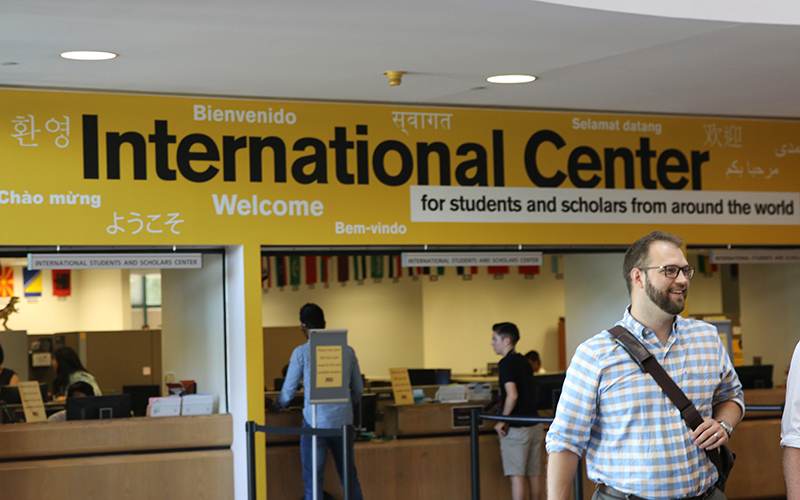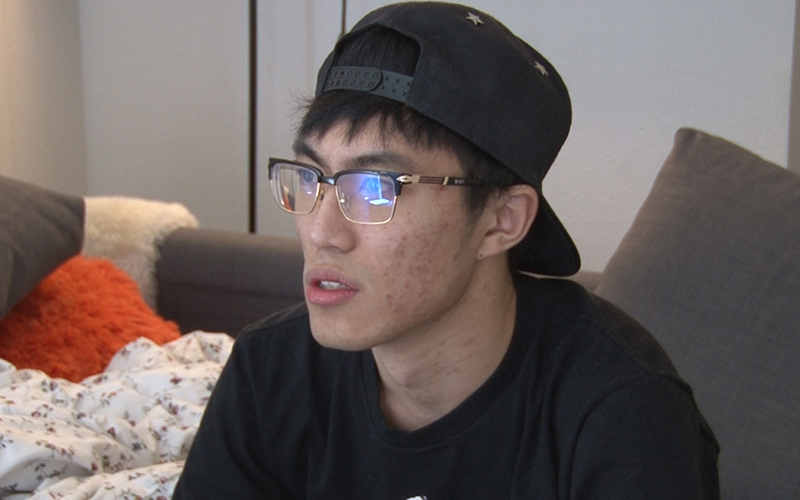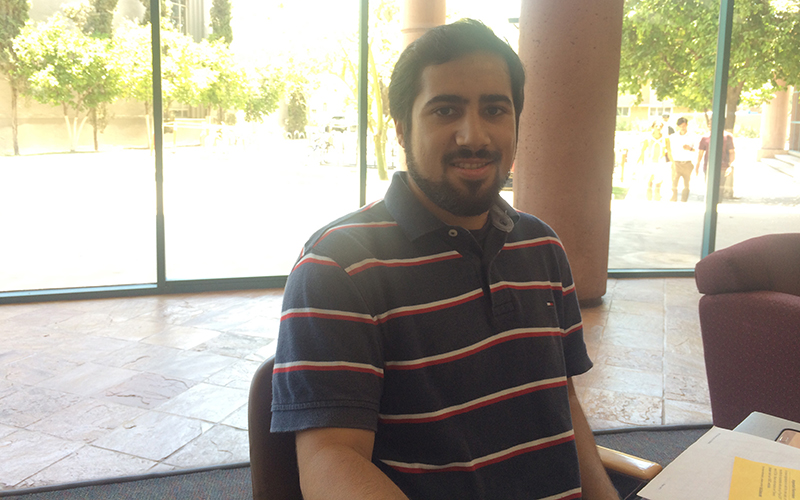
ASU’s International Students and Scholars Center encourages students to take advantage of the services available to them. (Photo by Yu Zhang/Cronkite News)

Guannan Liu, a 20-year-old ASU student, said understanding English slang and jokes is a hurdle to making friends in the U.S. (Photo by Yu Zhang/Cronkite News)

Ali Alsenan, who left Saudi Arabia four years ago to study mechanical engineering at Arizona State University, said it was hard for him when he started his first year in the U.S.(Photo by Yu Zhang/Cronkite News)
TEMPE – More than a million international students attend American colleges and universities, but often struggle with homesickness, learning the nuances of the English language and making friends outside of people from their home country.
Simply trying to navigate everyday life in Arizona, such as picking up a package from the post office or getting prescription medicine, can be a challenge.
“When I go to the apartment’s office, I don’t even know what to tell them if I have a package, if I have anything,” said Ali Alsenan, who left Saudi Arabia four years ago to study mechanical engineering at Arizona State University. “So, sometimes I just show them my Amazon account and they grab me mine.”
Trying to navigate the medical system in a different language can be especially taxing.
“The last time I was ill, at 3 in the morning, I was in so much pain I went to CVS for medicine. However, the staff told me they couldn’t sell me the medicine I needed without a prescription,” Guannan Liu, a 20-year-old ASU student, said in Chinese. “So, I bought a pain killer. Then, I felt very sad and hoped someone could take care of me.”
An estimated 1.2 million international students attended universities in the U.S. in 2016, according to the Department of Homeland Security.
The number of international students in the U.S. fluctuates. A 2017 report by the American Association of College Registrars and Admissions Officers says four out of 10 U.S. colleges reported fewer international applications while another four colleges reported an increase in admissions.
International students need to grasp a full understanding of English as soon as possible.
Despite a mandatory college-enrollment test that evaluates students’ listening, speaking, reading and writing skills in English, many students still struggle with the language to make friends, attend classes and handle daily life.
“The first semester when I start at ASU, it was hard because before that, at the English programs, all the students are from other countries,” Alsenan said. He said American teachers “speak very fast but you have to adapt to that.”
Liu said not understanding English slang and jokes blocks him from integrating socially on campus.
“When I first came to the U.S., I was excited to make friends from the U.S., but it turned out to be hard,” said Liu, who is from Shenyang, China. “How can you make American friends without proficiency in English? Who has the patience to teach you English?”
Loneliness and a feeling of exclusion can haunt international students, who then mainly interact with people from their own country.
Alsenan said all of his friends are Saudi.
“I have some American classmates and Mexican classmates and Chinese, Korean (classmates) but they are like, not my friends,” he said.”I don’t go out with them.”
Liu said 80 percent of his friends are Chinese. He observes many international students who only socialize within their cultural network, not willing to make new friends or talk to people from other countries.
ASU, like most higher education institutions, offers organizations to help international students adjust to life thousands of miles from home. Holly Singh, senior director of ASU International Students and Scholars Center, notes students have already taken the courageous step of studying abroad. They just need to take another one.
“They are open about having conversations with people from different backgrounds but there is always a nostalgia to stay with your people from your own background because it’s easy,” Singh said.
Liu said his first year at a U.S. college hasn’t always been easy.
In China, he did his homework using a paper and pen. At ASU, he has to post his homework online. He wasn’t sure where to find assignments and instructions.
“My English professor was especially kind to me. He would go over my essays and instruct me in the correct methods really carefully,” Liu said. “I always came to him for help and he was very kind to me. I got an A for that class at the end and my overall grade is 3.7, which is satisfactory.”
The international student center encourages students to seek help from the center, international student clubs and other campus services.
Advisers can connect students with English language or academic tutors, networking events, immigration and visa workshops and help them navigate tough situations, like a sudden medical need or a car accident.
“If they have some issues, private issues, we make sure we help them reach a conclusion to their personal issue,” Singh said. “If they have problems with their landlords, for example, we work with the landlord to help them. If they have a traffic violation..we work with police.”
“We want them to come in and see the services here we do have to offer,” said Daniel Hoyle, a center associate director. “It will definitely enhance their experience here.”
Liu, after one year in the country, is hopeful.
“I still have plenty of time,” he said. “Life will get better.”